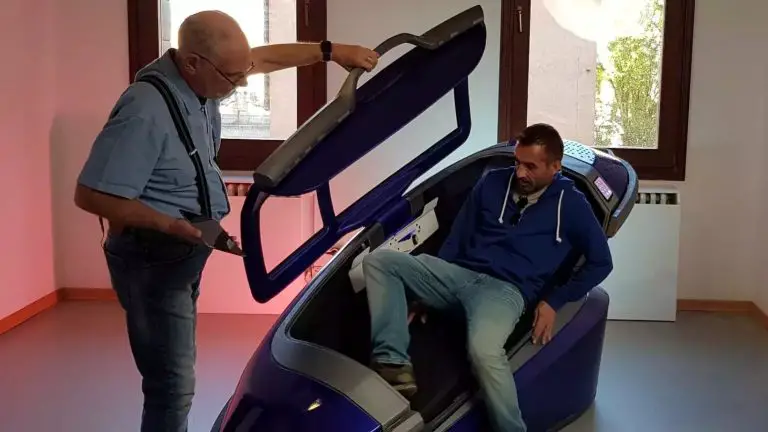The creator of the controversial “suicide pod,” known as Sarco, is facing criticism and legal scrutiny as the first person is set to use the device next week in Switzerland. Dr. Philip Nitschke, dubbed “Dr. Death,” announced on an online forum that the 3D-printed capsule, which promises a painless death within ten minutes, will soon be used. The Sarco pod operates by flooding the chamber with nitrogen, rapidly reducing oxygen levels, causing the individual to lose consciousness within a minute and die peacefully and drug-free within ten minutes.
Dr. Nitschke has highlighted the pod’s flexibility, noting it can be placed in various settings, from idyllic outdoor locations to assisted suicide organizations’ premises. He also plans to introduce these pods to the UK. Despite these claims, the Sarco pod has been accused of glamorizing suicide, with Swiss prosecutor Peter Sticher warning that those assisting with its use could face up to five years in prison. Sticher has raised concerns about the method’s reliability and control over the dying process.

The Sarco pods are designed to be user-friendly, even for individuals with severe illnesses and mobility issues. They can be activated via voice control, eye movement, or a button. An emergency button and escape route are also included in case users change their minds. However, the ethical and legal implications of such devices have sparked significant debate.
Under Swiss law, assisting in another person’s suicide is permissible as long as the motive is not selfish. However, Sticher has described Nitschke’s motivations as selfish, further complicating the legal landscape surrounding the Sarco pods. Critics argue that the pods oversimplify the complex issue of euthanasia and suicide, potentially leading to misuse or unintended consequences.
As the first use of the Sarco pod approaches, the debate over its ethical and legal ramifications continues. The device’s introduction highlights the ongoing challenges and controversies surrounding euthanasia and assisted suicide. For those affected by the issue, support services like Samaritans are available for confidential assistance.




